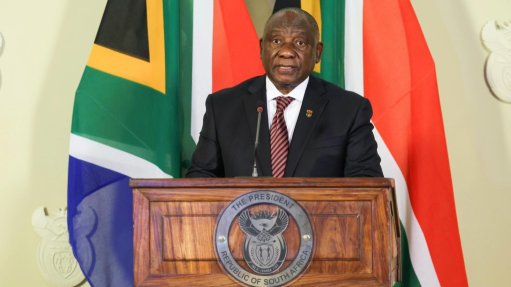Steadfast hold on power
In the intricate tango of politics and military might, one undeniable reality emerges: once soldiers seize State control, they seldom relinquish it willingly. Ibrahim Traore, the 36-year-old strongman who shot his way to power in Burkina Faso in September 2022, is the latest testament to this enduring phenomenon, having announced a fortnight ago that he and his junta are not going anywhere for the next five years.
What’s more, when elections are held in 2029, he will be vying for the top job, this time as a civilian candidate. Given the advantages of incumbency, it’s likely he will win the race and be an elected head of State for two five-year terms – until 2039.
This move was announced after a national consultative meeting whose resolutions were endorsed by civil society, security and defence force representatives, as well as lawmakers in the country’s transitional assembly, but was boycotted by most political parties.
Whereas quotas have been used to assign national assembly seats to traditional political parties since the military took over in 2022, under the new dispensation, ‘patriotism’ will be the only criterion for selecting the assembly’s members.
A new body, the Korag, will be created “to monitor and control the implementation of the country’s strategic vision in all areas and through all means”. Its composition and operations will be at Traore’s sole discretion.
Traore’s manoeuvre is just a singular note in a symphony of former African coup leaders who tenaciously clung to power. In the 1960s, the decade of African independence, the late Gnassingbé Eyadéma seized power in 1967 and remained the leader of Togo until his death in 2005. He was succeeded by his son, who himself has won every election held since, although his detractors insist this has been through fraudulent means.
Then there is Yoweri Museveni, the Ugandan President, who, frustrated by the impotence of the then Organisation of African Unity, once famously derided the continental body as a trade union for dictators. Although Museveni’s ascension to power – in 1986 – was not through a coup, it was the culmination of an armed rebellion. He later transitioned to civilian politics, just like what Traore plans to do in Burkina Faso, and remains ensconced in State House to this day.
There have been other examples of coup leaders who went on to serve as civilian heads of State for long periods. In Benin, the late Mathieu Kérékou toppled his country’s government in 1972 and ruled as a military dictator until 1991. Running as a civilian, he was elected President in 1996, remaining in office for the next ten years.
I could cite many, many more examples.
Recent African coups have been greeted with much jubilation by ordinary citizens, but the reality is that coups are bad, even for the economy, however well-meaning the coup plotters may be. This has been proved by experts on these things. One study, conducted by a political scientist at the Centre for Comparative and International Studies at the University of Zurich, in Switzerland, concluded that “democracy has a positive effect on GDP growth, but only if the military does not hold political power”.
The author of the study, which used data from a sample of 100 countries during the 25-year period from 1984 to 2008, argues that the military is a special-interest group and that, if it engages in politics and competition for access to – and control over – legislative and administrative processes, it directly affects the quality of governance and, in turn, the positive effect of democracy on economic growth.
Using data from the study, the author was able to demonstrate that the GDP of a country where the military is completely absent from politics increases by 1.75 percentage points if the country registers an increase from 0 to 7.3 on the Polity Scale – a measurement used in political science to assess the level of democracy or autocracy in a country, with –10 indicating the most autocratic regime and 10 the most democratic.
However, where the military participates in politics at an intermediate level, the GDP growth rate would be 0.34 percentage points.Article Enquiry
Email Article
Save Article
Feedback
To advertise email advertising@creamermedia.co.za or click here
Announcements
What's On
Subscribe to improve your user experience...
Option 1 (equivalent of R125 a month):
Receive a weekly copy of Creamer Media's Engineering News & Mining Weekly magazine
(print copy for those in South Africa and e-magazine for those outside of South Africa)
Receive daily email newsletters
Access to full search results
Access archive of magazine back copies
Access to Projects in Progress
Access to ONE Research Report of your choice in PDF format
Option 2 (equivalent of R375 a month):
All benefits from Option 1
PLUS
Access to Creamer Media's Research Channel Africa for ALL Research Reports, in PDF format, on various industrial and mining sectors
including Electricity; Water; Energy Transition; Hydrogen; Roads, Rail and Ports; Coal; Gold; Platinum; Battery Metals; etc.
Already a subscriber?
Forgotten your password?
Receive weekly copy of Creamer Media's Engineering News & Mining Weekly magazine (print copy for those in South Africa and e-magazine for those outside of South Africa)
➕
Recieve daily email newsletters
➕
Access to full search results
➕
Access archive of magazine back copies
➕
Access to Projects in Progress
➕
Access to ONE Research Report of your choice in PDF format
RESEARCH CHANNEL AFRICA
R4500 (equivalent of R375 a month)
SUBSCRIBEAll benefits from Option 1
➕
Access to Creamer Media's Research Channel Africa for ALL Research Reports on various industrial and mining sectors, in PDF format, including on:
Electricity
➕
Water
➕
Energy Transition
➕
Hydrogen
➕
Roads, Rail and Ports
➕
Coal
➕
Gold
➕
Platinum
➕
Battery Metals
➕
etc.
Receive all benefits from Option 1 or Option 2 delivered to numerous people at your company
➕
Multiple User names and Passwords for simultaneous log-ins
➕
Intranet integration access to all in your organisation

















